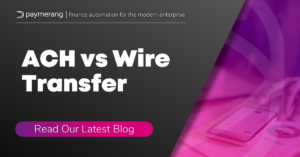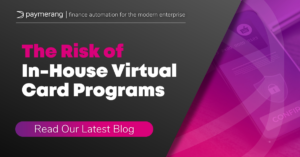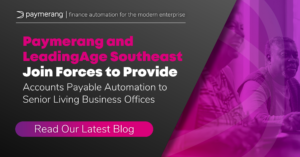Improve Your AP Process Across Multiple Properties
In recent years, the hospitality industry has faced unprecedented challenges. Yet, the industry’s projected growth illustrates it has come back stronger than ever. Data shows the global hotel and resort industry market is estimated to grow at a compound annual growth rate (CAGR) of 8.1% and reach $1.27 trillion U.S. dollars by 20311.
Hoteliers are leveraging automation to rebuild after the pandemic, navigate economic uncertainty, and ensure success in the future. By automating repetitive and time-consuming tasks, hotel management companies have lowered operating expenses and benefit from reduced labor costs, improved staff retention, increased revenue, and boosted occupancy rates.
Automation software for hospitality businesses has also emerged in the back office and provide the same benefits as above. Best-in-class invoice and payment automation solutions have eliminated tedious and costly paper Accounts Payable (AP) processes, saving teams thousands of hours annually and empowering them to focus on neglected areas, including financial performance, property management, and employee learning and development opportunities.
Why should hospitality businesses consider automating Accounts Payable (AP) processes?
Most hospitality management businesses are multi-property or multi-entity. Multiple suppliers, bank accounts, ERPs, etc., often make managing hotel AP difficult. Some of the biggest challenges with traditional processing include no visibility, an abundance of paper invoices, late fees, and an influx of unreconciled payments.
By streamlining workflows, you can focus on your bottom line and prioritize providing an exceptional guest experience. Below are 5 ways AP automation solutions improve multi-entity accounting processes:
1. Increased efficiency:
Manual accounts payable workflows like keying invoice data, cutting checks and stuffing envelopes, and payment reconciliation are time-consuming and prone to errors. Multiply those challenges by the number of properties you have, and it quickly becomes a logistical nightmare. Electronic invoice and payment processing save time, an estimated 80%, allowing your team to focus on other strategic initiatives and high-value tasks.
2. Greater security:
In 2021, 71% of organizations reported they were targets of payments fraud activity2. This is bad news for the hospitality industry, which still predominantly uses paper checks to pay vendors. Paying via check is risky because they include vulnerable banking information that can easily be “washed” and forged by fraudsters. In 2021, 66% of companies paying by check experienced real or attempted fraud, compared to only 3% when paying with single-use virtual cards3.
3. Cost savings:
When done manually, the cost of the Procure-to-Pay process adds up fast. The price of manually processing one paper invoice is an estimated $12.904, and the average cost of a paper check ranges from $1-$265. That doesn’t include other expenses like envelopes and postage, toner, check printers, maintenance, or bank fees, plus the labor costs of paying an employee handling all these manual responsibilities. Automated invoice processing reduces costs by 60%-70%, and
Payment Automation reduces costs by 80%-90%.
4. Enhanced visibility:
Reports show the hospitality industry suffered revenue losses averaging $2.4 billion in weekly lost wages during the pandemic6. As the hospitality industry rebuilds, it’s more critical than ever that CFOs have visibility into cash flow and financial management. Best-in-class Invoice Automation offers greater visibility through electronic workflows, giving you instant access to all invoices and approval statuses.
5. Real-time data insights:
Leading invoice and payment automation platforms provide data analytics and real-time dashboards that show all invoice and payment history. Having this data ready at the click of a mouse helps business leaders make split-second decisions.
Conclusion:
From reducing operating expenses to improving relationships with suppliers, the benefits of AP Automation are endless. As the hospitality industry looks toward the future, embracing new technologies that help the industry maintain its resiliency is vital. If kept the same, manual processes will continue to consume valuable time and money, resulting in lost profits for hoteliers.
To learn more about AP Automation that seamlessly integrates with several ERPs, including M3, Microsoft Dynamics, Sage Intacct, Inc, and Oracle Netsuite, schedule a demo with Paymerang today.
Sources:
1Statista
2The Association for Finance Professionals
3The Associationfor Finance Professionals
4IOFM: The True Costs of Paper-Based Invoice Processing and Disbursements
5Check Issuing: The Cost of Issuing Checks (A Guide for Businesses)
6Oxford Economics and Hotel Effectiveness




